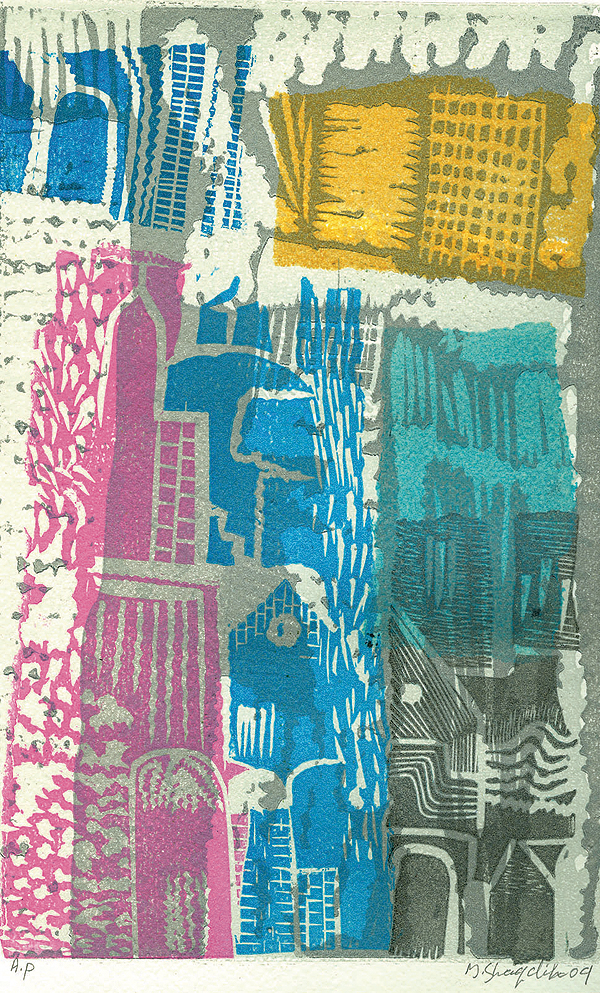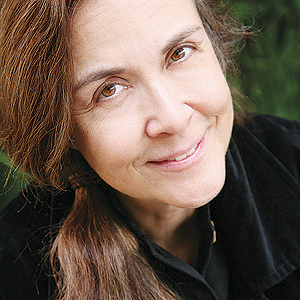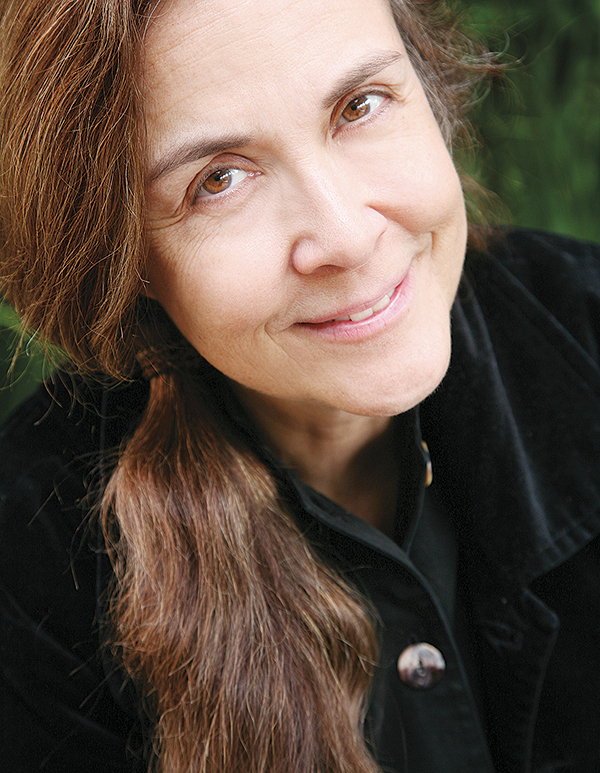Naomi Shihab Nye describes herself as a “wandering poet.” She has spent 40+ years traveling the country and the world to lead writing workshops that inspire students of all ages. Nye was born to a Palestinian father and an American mother, and grew up in St. Louis, Jerusalem, and San Antonio. Drawing on her Palestinian-American heritage, the cultural diversity of her home in Texas, and her experiences traveling in Asia, Europe, Canada, Mexico, and the Middle East, Nye uses her writing to attest to our shared humanity.
Naomi Shihab Nye is the author and/or editor of more than 30 volumes. Her books of poetry include 19 Varieties of Gazelle: Poems of the Middle East; A Maze Me: Poems for Girls; Red Suitcase; Words Under the Words; Fuel; and You & Yours. She is also the author of Mint Snowball; Never in a Hurry; I’ll Ask You Three Times, Are you Okay?; Tales of Driving and Being Driven (essays); Habibi and Going Going (novels for young readers); Baby Radar, Sitti’s Secrets, and Famous (picture books); and There Is No Long Distance Now (a collection of very short stories). Other works include several prize-winning poetry anthologies for young readers, including Time You Let Me In, This Same Sky, The Space Between Our Footsteps: Poems and Paintings from the Middle East, What Have You Lost?, and Transfer. Her collection of poems for young adults entitled Honeybee won the 2009 Arab American Book Award in the Children/Young Adult category. Her novel for children, The Turtle of Oman, was chosen Best Book of 2014 by The Horn Book Magazine, a 2015 Notable Children’s Book by the American Library Association, and it won the 2015 Middle East Book Award for Youth Literature.

The beauty of Palestinian hospitality, optimism in the face of unspeakable difficulties and injustice, and essential Palestinian good humor has fortified Nye always. She asserts that “feeling both the honor of deep connections and the importance of knowing one another strongly compel me to share and bring to light the stories of Palestinian and Arab peoples.”
What Changes
My father’s hopes travel with me
years after he died. Someday
we will learn how to live. All of us
surviving without violence
never stop dreaming how to cure it.
What changes? Crossing a small street
in Doha Souk, nut shops shuttered,
a handkerchief lies crumpled in the street,
checkered maroon and white,
like one my father had, from Jordan.
Perfectly placed in his pocket
under his smile, for years.
He would have given it to anyone.
How do we continue all these days?
Everything Changes the World
Boys on a beach,
women with cook pots,
men bombing tender patches of mint.
There is no righteous position.
Only places where brown feet
touch the earth.
Maybe you call it yours.
Maybe someone else runs it.
What do you prefer?
We who are far
stagger under the mind blade.
Every shattered home,
every story worth telling.
Think how much you’d need to say
if that were your friend.
If one of your people
equals hundreds of ours,
what does that say about people?
For Aziz
I had not noticed
the delicate yellow flower
strikingly thin petals
like a man with many hopes
or a woman with many dreams
and the center almost a tiny hive
ants could crawl in and out of
if they wanted to
Had not noticed the profusion
of these flowers
on the path
Had not stopped, stooped
to absorb the silent glory
of many-petalled yellow
or remembered the freshness
of my father’s collar
for some years now
the rush of anticipation
circling his morning self
despite so much ruined history
and searing news
Who can help us?
Yellow beam
spiral sunshine
legacy
Cross the Sea
A girl in Gaza
speaks into a table microphone:
Do you believe in infinity?
If so, what does it look like to you?
Not like a wall
Not like a soldier with a gun
Not like a ruined house
bombed out of being
Not like concrete wreckage
of a school’s good hope
a clinic’s best dream
In fact not like anything
imposed upon you and your family
thus far
in your precious 13 years.
My infinity would be
the never ending light
you deserve
every road opening up in front of you.
Soberly she nods her head.
In our time voices cross the sea
easily
but sense is still difficult to come by.
Next girl’s question:
Were you ever shy?
Every Day
For Aziz, and Palestine
He loved the world and what might happen in it.
Some people labor to get up but
he was so ready to rise.
Refreshed and glistening, still alive
after the dark hours,
glistening with hope and cologne.
Must we love the world doubly much now
in his absence?
He is not absent.
Still living in the fig tree,
the carefully placed stone,
the draping mimosa.
In his empty notebooks, the lonely wooden chair.
We will keep it pulled up to the desk, just in case.
Just in case justice suddenly walks into the room and says,
Yes, I’m finally here, sorry for the delay.
Tell me where to sign.
He tried to think the best of people.
His drawer was not stacked with disappointments.
Only folded white handkerchiefs still waiting.
After the storm, frogs and toads chorus along the pavement,
We believed! We believed!
Worry Cocoon
For Samih al-Qasim
To live with what we are given –
Graciously, as if our windows open wide as our neighbors’,
as if there weren’t insult at every turn.
How did you do that?
You sprang from the earth same way everyone does,
from the soil of your parents, the small bed and hopeful song.
Were pressed along through a century
that didn’t honor your people,
who washed their faces anyway,
stitched the dresses, buttoned shirts.
How did you survive so much hurt and remain gracious,
finding words to mark the shapes
of grief, how did you believe,
then and forever, something better
could come your people’s way?
All poems are from the forthcoming
collection Voices in the Air.



